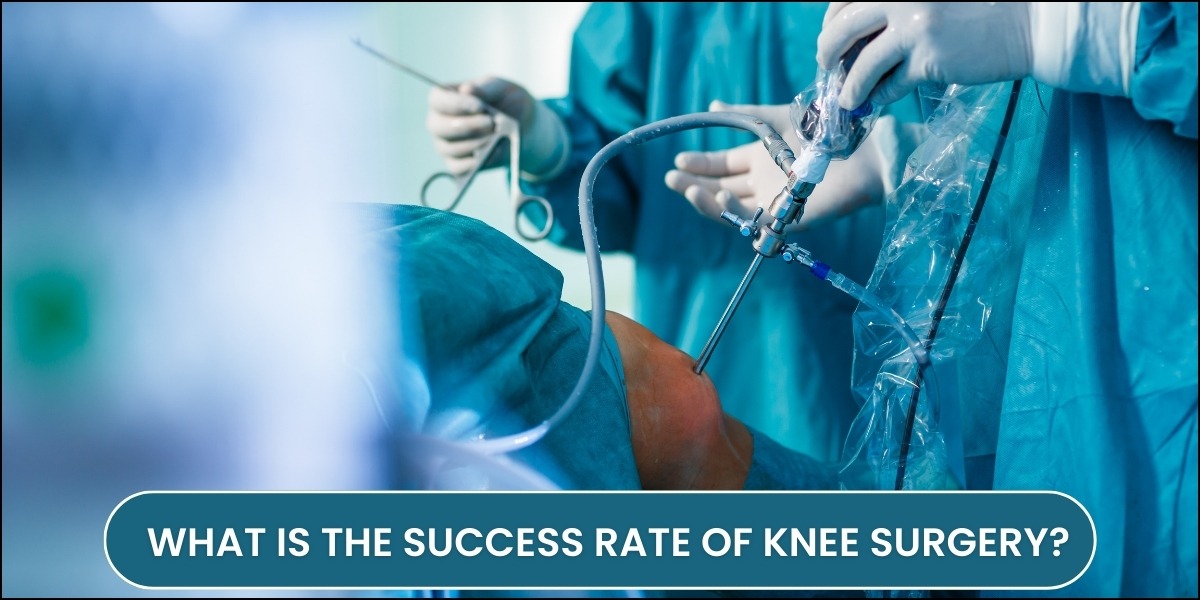If chronic knee pain has you considering surgery, one burning question dominates all others: “Will it work?” It’s a natural and crucial question. The prospect of surgery can be daunting, and understanding the likelihood of a positive outcome is the first step toward making an informed decision.
The short answer is that the success rate for most knee surgeries, particularly knee replacements, is exceptionally high. However, “success” can mean different things to different people. For some, it’s the elimination of pain; for others, it’s returning to a favorite sport or simply playing with grandchildren without discomfort.
Let’s break down the numbers and factors that influence the success of knee surgery.
The Gold Standard: Knee Replacement Success Rates
Total Knee Replacement (TKR), or arthroplasty, is one of the most successful and commonly performed orthopedic procedures worldwide. Studies and joint registry data from across the globe consistently show impressive results:
-
10-Year Success Rate: Over 95% of total knee replacements are still functioning well after 10 years.
-
15- to 20-Year Success Rate: The success rate remains strong at 90-95% after 15 years and 82-85% after 20 years.
This means that for the vast majority of patients, a knee replacement is a lifelong solution that dramatically reduces pain and significantly improves quality of life.
Defining “Success” in Knee Surgery
While longevity is a key metric, success is multidimensional. When surgeons talk about a successful outcome, they are typically measuring:
-
Pain Relief: This is the primary goal. Successful surgery reduces pain by 90-100%, allowing patients to stop or drastically reduce pain medication.
-
Improved Mobility and Function: The ability to walk, climb stairs, bend, and resume daily activities without limitation is a critical measure of success.
-
Patient Satisfaction: Ultimately, the patient’s own assessment is vital. Surveys show that 90-95% of patients report being satisfied or very satisfied with the results of their knee replacement surgery.
-
Stability and Correction of Deformity: Surgery successfully corrects bow-legged or knock-kneed deformities and restores joint stability.
Factors That Influence Your Success Rate
The overall statistics are encouraging, but your individual success depends on several key factors:
-
Surgeon’s Expertise: The skill and experience of your orthopedic surgeon are paramount. A high-volume knee replacement surgeon is proficient in precise surgical technique, proper implant positioning, and balancing the soft tissues around the knee.
-
Type of Implant and Technology Used: Modern implants are designed for durability and longevity. The use of robotic knee replacement surgery allows for unprecedented precision in planning and executing the procedure, leading to better outcomes and faster recovery.
-
Your Pre- and Post-Surgery Health: Your overall health plays a significant role. Conditions like diabetes or obesity can increase the risk of complications. Following pre-surgery advice to optimize your health is crucial.
-
Commitment to Rehabilitation: The surgery is only half the battle. Your dedication to physical therapy and rehabilitation is non-negotiable. Diligently performing prescribed exercises is the key to regaining strength, flexibility, and range of motion.
-
Severity of Your Condition: Patients who undergo surgery before their muscles have severely atrophied or deformity has become extreme often experience smoother recoveries.
Success Rates of Other Common Knee Surgeries
-
Arthroscopic Surgery (e.g., for Meniscal Tears): Success rates vary based on the specific procedure. While arthroscopy is excellent for diagnosing issues and treating many conditions, its success for a degenerative meniscus tear is more debated compared to a traumatic tear in a younger patient.
-
ACL Reconstruction: This surgery has a very high success rate in restoring stability to the knee, with over 90% of patients returning to their normal level of activity and sports.
Conclusion: A Life-Changing Decision with High Odds of Success
Knee surgery, especially replacement, is not a decision to be taken lightly. However, it is one backed by decades of medical advancement and overwhelmingly positive data. For individuals crippled by arthritis or injury, it represents a proven path back to a active, pain-free life.
The key to unlocking this high success rate lies in choosing the right medical partner—a skilled and experienced surgeon who will guide you through every step of the process, from diagnosis to rehabilitation.
If you are in Pune and seeking expert care for your knee condition, consulting with a specialist like Dr. Murtaza Adeeb, a renowned Knee replacement surgeon in Pune, can provide you with the personalized insight and advanced treatment options, including robotic knee replacement surgery, to ensure your journey is a successful one. With the right expertise and commitment, you can confidently look forward to a future with less pain and more movement.
Frequently Asked Questions (FAQs)
1. What is the most common reason for knee replacement surgery?
The most common reason is severe osteoarthritis, where the protective cartilage that cushions the ends of your bones wears down over time. This leads to pain, stiffness, swelling, and a significant loss of function. Other reasons include rheumatoid arthritis, post-traumatic arthritis, and severe knee injuries.
2. How long does it take to fully recover from knee replacement surgery?
While recovery timelines vary, most patients can expect to resume most daily activities within 3 to 6 weeks. Full recovery, where all swelling subsides and strength and endurance are fully rebuilt, typically takes 6 months to a year. Commitment to physical therapy is the biggest factor in determining recovery speed.
3. Are there alternatives to total knee replacement surgery?
Yes, depending on the severity and location of your damage, alternatives may exist. These include conservative management (physical therapy, weight loss, injections, medication), arthroscopic surgery, or partial knee replacement (unicompartmental arthroplasty). A qualified orthopedic specialist can determine if you are a candidate for these less invasive options.







